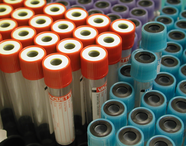 How often have you assessed adrenocortical function in critical illness by measuring cortisol levels or performing an ACTH stimulation test? And how often have you been involved in discussions on whether these tests actually should be done? Venkatesh et al. provide us now with an article on this topic, leaving us with that odd sort of feeling... little we know, much we do! These are the ten false beliefs about cortisol in critically ill patients: 1. A relative adrenal insufficiency (RAI) has been proposed to be associated with worse outcome in critically ill patients. In fact, multiple studies have demonstrated that the reverse is true: higher random cortisol values are associated with a greater mortality in septic shock 2. Total plasma cortisol levels fluctuate significantly. Therefore, the interpretation of a single random total cortisol measurement is problematic. 3. Measuring total plasma cortisol by immunoassays will show different results when same sample is analysed by different assays. 4. ACTH stimulation test: There is no consistent relationship between cortisol response and illness severity in critical illness. Even if RAI is suspected, subgroup analysis of randomised controlled trials of steroids in septic shock do not consistently report a benefit of steroids given. 5. A normal ACTH stimulation test does not out-rule a clinically significant adrenal insufficiency. 6. Total plasma cortisol concentrations do not reflect accurately the bioavailable fraction of plasma free cortisol (PFC). 7. Direct measurement of free cortisol is complex and mostly not available. And.. unfortunately, calculating PFC concentrations using the Coolen’s equation is unreliable in critical illness. 8. In critical illness it is difficult, if not even impossible, to assess the tissue adrenal response based on plasma cortisol levels. 9. Elevated plasma cortisol levels are not only due to an increased production but also to a reduction in cortisol clearance occurring in critical illness. 10. Treating critically ill patients with classical doses of hydrocortisone (50-100mg every 8h) may result in grossly supraphysiological levels of cortisol. Got interested on some further background information? Read here: Venkatesh et al. Intensive Care Med, January 2015 |
Search
|


 RSS Feed
RSS Feed


